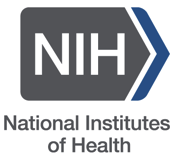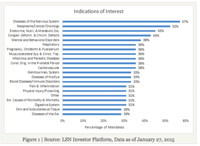
BioHealth Innovation, Inc. (BHI), a Montgomery County innovation intermediary is seeking an energetic and motivated life science professional for the role of an Entrepreneur-in-Residence (EIR) focused in the Medical Device space.
The EIR program was setup at BioHealth Innovation to:
- Retain and bring entrepreneurial talent to the Maryland Ecosystem
- Build sustainable life science startups that will add value within the healthcare system and also build upon the existing infrastructure
- Connect resources including Institutions, technology assets, people and money within Maryland as well as attract it to Maryland
The EIR will work with BHI leadership to ensure that the activities and outcomes are aligned with BHIs strategic focus.

Position Summary
GenVec is seeking a highly motivated professional who is able to make strong contributions in supporting all business and corporate development activities. The successful candidate will work directly with the Chief Executive Officer and will interact extensively with the scientific, legal, and financial personnel of the company to review and evaluate the scientific and commercial aspects of potential transactions. The Business Development Analyst will be responsible for supporting a portfolio of business development projects which address in-licensing, out-licensing, and acquisition opportunities for GenVec.

Qiagen NV (NASDAQ: QGEN ) solutions are used every day by healthcare providers to analyze patient DNA and RNA in order to guide treatment and by researchers pursuing next generation medicine. The opportunity for Qiagen to help the industry deliver the right drug to the right patient at the right dose at the right time is big, but a significant drop-off in revenue from a legacy product meant that potential didn't translate into significant sales growth last year.

Germantown-based Intrexon Corp. a synthetic biology company, plans to raise up to $150 million though a secondary offering of common stock, the company said late Tuesday.

MedImmune, the global biologics research and development arm of AstraZeneca, is probably best known for its work in discovering and developing therapeutics based on antibodies -protein molecules produced by the body as a primary immune response. However, for a number of reasons, including the large size of the molecule, antibodies may not always offer the most appropriate solution for treating some diseases. In those cases there may be alternative, innovative approaches which can be explored in parallel with our usual work with antibodies.

Johns Hopkins University will give $15 million to promising researchers over the next three years.
Two new grants, totaling $15 million over three years, are intended for early-career researchers, who are increasingly being passed up for federal research grants. The grants will also support researchers who collaborate with others outside their school. Hopkins President Ronald J. Daniels is concerned about a potential dearth in new researchers entering the field, and in early January told the Baltimore Business Journal he planned to earmark more university funds to support their work.

DreamIt Health Baltimore announced its second cohort on Monday.
The startups that make up the accelerator’s class of 2015 include a telehealth platfrom, an app to improve patient handoffs and a photo-sharing service for healthcare professionals. Five of the six companies are from outside Baltimore, with one hailing from Spain. Officials also noted that two of the companies are female-founded.

Improving patient handoffs, autotransfusion, Epic alumni and a couple of women-led startups figure into DreamIt Health Baltimore‘s second class of early stage healthcare companies. They will also be the first to occupy its permanent office at a new shared working space.
In a phone interview with DreamIt Ventures Managing Director Jason Hardebeck, he noted that the accelerator has added new partners — University of Maryland in Baltimore, including its medical school, and The Abell Foundation.

Biotechnology companies in the Washington region attracted less money from investors in 2014 than any other year since 1999, recent data show, even as the sector saw a significant increase in venture capital dollars in other parts of the country.
Local industry observers aren’t sounding alarms just yet. They say one down year, no matter how down it may be, doesn’t necessarily mean the region has fallen out of favor with life sciences investors.

Tuesday, February 03, 2015, 08:00am - 10:30am
Who Has Capital and Who is the Right Fit for You?
Join the Tech Council of Maryland for a unique and informative discussion on life science investment strategy. On Wednesday, December 10, 2015 in Gaithersburg, Maryland, TCM will convene an investment super panel comprised of experts and representatives from across the investment spectrum.
Whether you are looking for the next round of financing, going into clinical trials, gearing up for the JP Morgan Annual Healthcare Conference, of just looking to sharpen your fundraising skills, this program is designed to teach you how to get the inside edge. The discussion, led by Dennis Ford, CEO of Life Science Nation is designed to offer attendees an exclusive view into the minds and operations of successful life science investors and to provide new and valuable tools to help you operationalize your knowledge for success.

Tuesday, Feb 10, 2015 From 4:00-6:00 PM
Please join us for a Business Roundtable Discussion moderated by Bernanrd T. Ferrari, MD, JD, Prfoessor and Dean - Carey School of Business, at our new FastForward East Innovation Hub!

DATE: February 11, 2015 3:30 - 5:00 PM
LOCATION: Montgomery County Department of Economic Development, 111 Rockville Pike, Suite 800, Rockville, MD 20850
We're kicking off 2015 with a new (permanent) location and a wide variety of new programs for innovators and entrepreneurs in Montgomery County. Have you heard of the Thingstitute? Do you know about the Venture Mentoring Program? Guess what - there's also a new life sciences accelerator! All of this (and much more!) including Montgomery County's new emphasis on identifying funding sources for your business. You won't want to miss this program.

Benjamin H. Wu has been named the new Deputy Secretary of the Maryland Department of Business and Economic Development, Governor Larry Hogan and DBED Secretary Mike Gill announced today.
A former DBED employee, Wu is among the first Cabinet deputies to be named to the Hogan administration. He will act as Chief Operating Officer, responsible for overseeing the Department’s charge of attracting companies to the State, as well as working with in-state companies to help them expand and add jobs, while connecting them to partners and resources.

February 10th at 2pm ET
Every Phase II NIH SBIR/STTR application requires a commercialization plan, which essentially describes how the company plans bring its innovative technology to market. In this Hangout, we will discuss the key elements of a successful commercialization plan.

A U.S. House of Representatives panel today released a widely anticipated proposal for speeding the development of new medical treatments. The massive, 393-page document, dubbed the 21st Century Cures Act, has been under development by Fred Upton (R–MI) and Diana DeGette (D–CO) of the House Energy and Commerce Committee since last April. It grew out of a series of hearings and roundtables last year on ways to spur biomedical research innovation and streamline clinical trials and the drug approval process. The result is a long list of ideas summarized in this document.

President Obama’s settled the score on this one: It’s precision medicine. Not personalized medicine.
The life sciences community has been throwing around both terms, but there’s actually a keen distinction between the two.

Roche has become the latest pharmaceutical company to join the connected health party at Qualcomm Life — in this case to do remote patient monitoring. The goal of the strategic collaboration is to generate big data insights on patients’ condition to reduce complications from chronic conditions, according to a company statement.

LSN researchers recently decided to take a deep dive into interviews we have held with venture philanthropy groups from around the world to see what the future likely has in store. After analyzing data gathered over the past three years from more than 150 investors, we uncovered a few notable trends.

Every startup wants to change the world, but DC-based incubator and seed fund 1776 fosters the type of early stage companies that just might have a chance.
The incubator is focused specifically on startups for the public good and you won’t find any benign photo sharing apps in 1776’s portfolio.

The Federal Laboratory Consortium for Technology Transfer is proud to announce the winners of its 2015 Awards. Now in its 32nd year, the awards have recognized the outstanding efforts of scientists, technology transfer professionals, and their partners in academia and industry. Many technological breakthroughs that have become an essential part of our everyday lives have been winners of the FLC awards.
This year, nearly 100 nominations were submitted from eight federal agencies, which made the decision to select 23 winners a difficult one. But those selected represent technology transfer at its highest level.

Twenty-five U.S. institutions have been selected by the NSF-funded National Center for Engineering Pathways to Innovation (Epicenter) to join the Pathways to Innovation Program.
The Pathways to Innovation Program is designed to help institutions fully incorporate innovation and entrepreneurship into undergraduate engineering education. The program is run by Epicenter, which is funded by the National Science Foundation and directed by Stanford University and VentureWell (formerly NCIIA).

In what it's calling a 'historic' announcement, the Department of Health and Human Services has set new goals to speed the U.S. healthcare system toward value-based care.
HHS Secretary Sylvia Mathews Burwell announced Monday that the agency wants to tie 30 percent of fee-for-service Medicare payments to quality or value through alternative payment models, such as accountable care organizations or bundled payments, by the end of 2016. It also aims to have 50 percent of payments affiliated with these models by the end of 2018.

In early January Brenton “Brent” Saunders, the chief executive of upstart pharmaceutical giant Actavis , reclined in a medical chair on a stage in an Orlando hotel ballroom as a plastic surgeon pierced his face 30 times, delivering needles full of Botox to the crooks of his eyes and nose and injecting Juvederm Voluma, a dermal filler, into his cheeks. A cameraman documented every prick and projected it on a huge screen behind him. These are bestselling products for Allergan AGN -0.51%, which Actavis is buying for $67 billion, the biggest health care deal in six years. The audience, 1,000 Allergan sales reps, went wild.